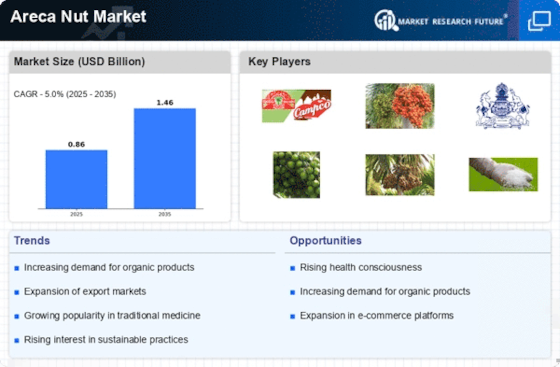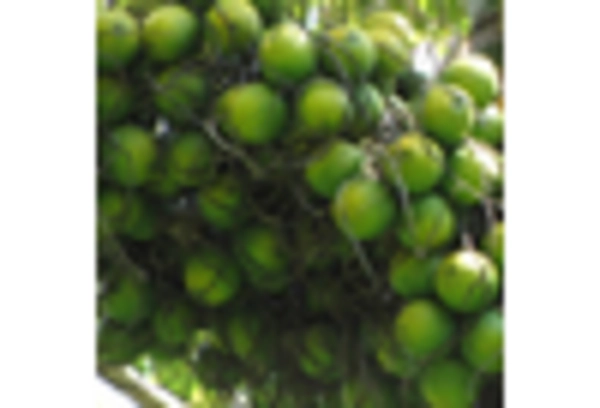Market Analysis
In-depth Analysis of Areca Nut Market Industry Landscape
The Areca nut market exhibits a dynamic landscape driven by a combination of cultural, economic, and environmental factors. Areca nut, also known as betel nut, holds cultural significance in many Asian and Pacific communities where it is commonly chewed as part of traditional practices. The market dynamics of the Areca nut industry are deeply intertwined with these cultural norms, influencing both production and consumption patterns.
One of the key drivers of the Areca nut market is its economic importance for the regions involved in its cultivation. Countries like India, Indonesia, Bangladesh, and parts of East Africa are major producers, contributing significantly to the global supply. The economic livelihoods of many farmers depend on Areca nut cultivation, making it a crucial cash crop for these regions. Fluctuations in market prices, demand from domestic and international markets, and the availability of suitable growing conditions all impact the economic dynamics of Areca nut cultivation.
Global demand for Areca nut is influenced by cultural practices, as well as changing trends in the tobacco and alternative medicine industries. In regions where chewing betel nut is deeply ingrained in the social fabric, local demand remains relatively stable. However, increased awareness of health risks associated with Areca nut consumption has led to a decline in demand in some markets. On the other hand, the nut's use in traditional medicine, especially in Ayurveda and traditional Chinese medicine, has spurred interest in certain global markets, contributing to shifts in demand dynamics.
Market dynamics are also affected by regulatory measures implemented by various countries to address health concerns related to Areca nut consumption. Some nations have imposed restrictions or outright bans on the sale and consumption of Areca nut due to its association with oral health issues and an increased risk of cancer. These regulatory changes have a direct impact on market access and demand, influencing the overall market dynamics.
Environmental factors, including climate change and sustainable agricultural practices, play a role in shaping the Areca nut market. The Areca palm is sensitive to changes in temperature and precipitation, affecting crop yields. Sustainable cultivation practices, such as agroforestry and organic farming, are gaining traction within the Areca nut industry in response to environmental concerns. These practices not only address ecological issues but also cater to the growing consumer demand for ethically produced and environmentally friendly products, thereby influencing market dynamics.


















Leave a Comment